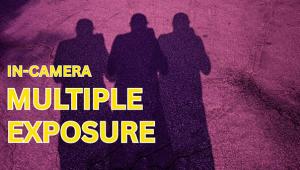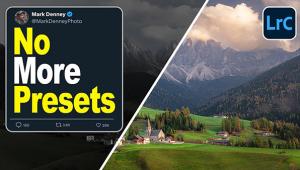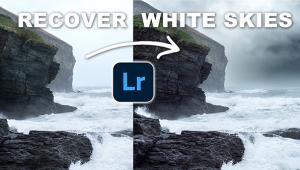A Look Back: Big Changes, but Some Things Have Remained the Same
![]()
Commentary
A Look Back: Big Changes, but Some Things Have Remained the Same
by George Schaub
Thinking about the past is natural at this time of year, when part of what we do is recognize change as being part of the natural cycle of life. In photography, massive changes have taken place that affected us all. So as part of my New Year reminiscences I'd like to take a ten-year or so look back at what has changed, and in some cases what has remained the same.
Ten years back there was no Internet, and certainly no Internet commerce. And ten years back there was one little thing that was bubbling below the surface called digital, and if there's one certain change that even those who have been asleep recognize it is that digital has changed all that came before.
I remember sitting high above Rochester in the executive offices of Kodak doing an interview with George Fisher. Part sage, part visionary and all business, Fisher scanned the horizon and said in no uncertain terms, "When electronics hits the photo industry it will never be the same." Since then, Kodak had become both the instigator and at times the victim of that change, as has just about every manufacturer and distributor in the photo business. That was when film was king and autofocus was just being recognized by pros. The single use camera had begun to pick up steam, and little did everyone know that it would grow to represent a major portion of film sales many years later.
But there were clear signals, at least in hindsight, that a massive change in how people would capture, store, manipulate and enhance their photo experience was taking place. Computers were becoming bigger and faster, and cheaper every day. Software for simple image manipulation was becoming universal and dropping in price. In fact, Photoshop for Windows was launched in 1993. And then there were those first consumer digital cameras, sad things by today's standards with low resolution, poor quality and high price. Surely, we thought then, film would always be king.
Perhaps the biggest change came when the digicam shifted from being a computer peripheral to being one of the main items that made people seriously look at a computer as more than a work device. Rather than act as a sort of cute thing you could attach to your computer it became the medium to which people looked to record their lives.
Throughout the years we have both embraced and been burned by our digital photography experiences. In the beginning digital was oversold on what it could do. Imagine trying to get good prints out of what essentially were VGA resolution chips. Pros spent countless thousands on gear that would soon grow obsolete. As time went on the early adopters became somewhat cynically known as the "bleeding edge". But as things progressed people fell in love with the convenience and economy of the medium. Things still went awry, and buyers still felt like they were paying to be part of a product improvement focus group, but despite it all digital began to prevail.
But the conversion to digital has not changed our core reasons for making pictures,
and that's something that will and should not change. Because the mind
itself is an image making machine, we relate to the photographic image as a
representation of the people, events and places that give our lives context
and, at times, meaning. Photography provides the ways and means to remember
our loved ones and to examine our social standing and perceptions of the world
around us. It feeds our imagination, creativity and desire to share. It is both
fun and exciting, and often a reason to be in a certain place at a certain time.
So, with all the goings on of the past years we can should still maintain focus
on just what it is we do and why we enjoy doing it. Photography, be it digital
or film, is a vital part of our lives and is often the thread in the cloth of
our existence. That hasn't changed, and will never change. In some ways
the French expression, "Plus ca change, plus que c'est la meme chose"
(the more things change the more they remain the same) is true. In others, in
terms of tools and techniques, digital has radicalized us all.












































